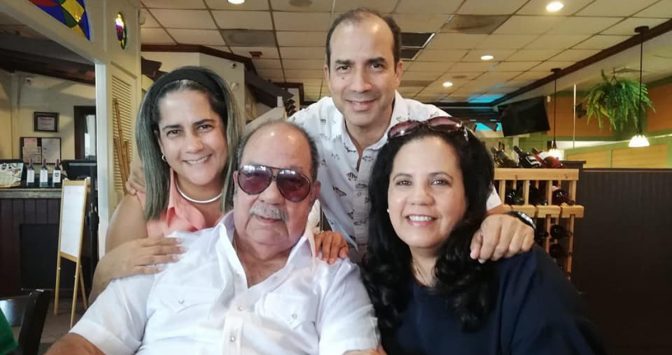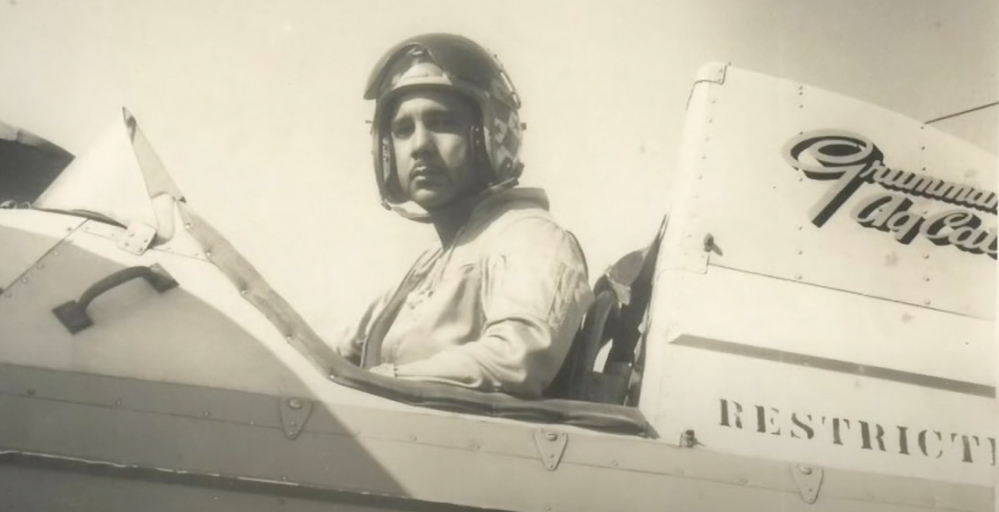World’s Longest Serving Marijuana Prisoner Finally Freed

After spending 39 years behind bars, Antonio Bascaro, 84, the world’s longest marijuana prisoner, was finally released from federal lockup on May 1.
As the date approached, the volume of well wishes from supporters, fellow inmates and even FCI Miami prison staff surprised Bascaro and warmed his heart.
With excitement high, he and his family were “counting the minutes” until the release on house arrest. In addition to his children and grandchildren, a handful of press greeted the octogenarian as he emerged from the prison gates.
Hours later, Bascaro was with his sister in the kitchen preparing his favorite meal, lechon asado, as his children, grandchildren and friends gathered to celebrate the long-overdue reunion.
It’s a happy ending straight out of a Hollywood movie filled with twists, turns and international intrigue.
From Cuban War Hero to CIA Asset to Marijuana Smuggler
Born in Cuba in 1936, Bascaro quit medical school in 1952 and joined the Navy because he had always dreamed of being a pilot. At the time, Cuba was under the rule of dictator Fulgencio Batista, who would be deposed by Fidel Castro’s Communist regime in 1959.
Bascaro worked as a pilot to support counter-intelligence operations. After Castro took power, he was held in various Cuban prisons before mistakenly being released and eventually granted asylum in Uruguay.
Because of his experience as a Cuban military pilot, the CIA recruited Bascaro in its efforts to overthrow Castro. He trained in Guatemala and relocated to Nicaragua for the Bay of Pigs invasion.
After the failed 1961 invasion, Bascaro returned to Guatemala where he married and had three children. He divorced a decade later and moved to South Florida, a U.S. marijuana smuggling hub. With his CIA training and experience as a pilot, he proved to be a valuable commodity for that kind of enterprise.

Bascaro learned to fly in the Cuban Navy. After his involvement in the Bay of Pigs operation, he used his aviator skills to smuggle marijuana into the U.S..
A mutual friend introduced Bascaro to Jose Luis Acosta, another Cuban exile who was looking for a pilot to help with the logistics of running his operation. Seeking a way to provide for his family and lured and by both the lucrative cash rewards and the excitement of such a proposition, Bascaro accepted Acosta’s offer.
But in 1978, the Feds caught up to the Acosta organization when one of its boats carrying marijuana ran aground. Bascaro was arrested in Guatemala in 1980, subsequently convicted of importing more than 600,000 pounds of Colombian marijuana into the southeastern United States and sentenced to 60 years in federal prison, despite the fact that he was a first-time offender with an impeccable military record and there was no violence in his case.
Bascaro refused numerous offers of immunity from the government in exchange for his testimony about others in the group. Acosta, also sentenced to 60 years, cooperated with authorities and was released in 1994 after 12 years in prison.
Bascaro was arrested in Guatemala in 1980, subsequently convicted of importing more than 600,000 pounds of Colombian marijuana into the southeastern United States and sentenced to 60 years in federal prison.
Over the years, Bascaro tried repeatedly to appeal the length of his sentence to no avail. He filed for clemency on his own twice and again with the help of an attorney during President Obama’s push for justice reform. Each time, he was denied.
The only thing that kept Bascaro from having to serve his entire 60-year term is the fact that he was sentenced under old rules that allowed prisoners to accumulate unlimited amounts of credit for good behavior and educational accomplishments that reduces their sentences.
Conversely, the age of his case kept him from receiving new sentencing reductions that were recently put into place. These would’ve, in theory, led to his release several years ago. However, when passing the laws, legislators failed to account for the possibility of nonviolent inmates who’ve been warehoused as long as Bascaro. That technicality meant more disappointment for the Bascaro family.
Thanks to decent genes and a will to survive, he finally walked out of prison, albeit with the help of a cane, a free man.
Immigration Concerns for Bascaro
But even as friends and supporters celebrate, the government’s threat over his life is not yet entirely over.
Bascaro was originally scheduled to go to a halfway house a year ago, but his lack of U.S. citizenship put that plan on hold. Even now that he’s been released, as a Cuban exile, Bascaro has a compulsory appointment with ICE (Immigration and Customs Enforcement) on June 11.
He and his family are hopeful it’s just a formality and that he’ll be allowed to remain in the United States. He thinks his training with the CIA and involvement in the Bay of Pigs invasion should prevent him from being deported. But nothing is certain.
His life would be in danger, if after all these years, he was sent to Cuba or any country that has a Cuban embassy, which Guatemala does. He has no ties to or support systems in either of those countries.
“I think everything is OK,” Bascaro says, “but I know the system and I’m ready for the unexpected.”

